Premium Only Content
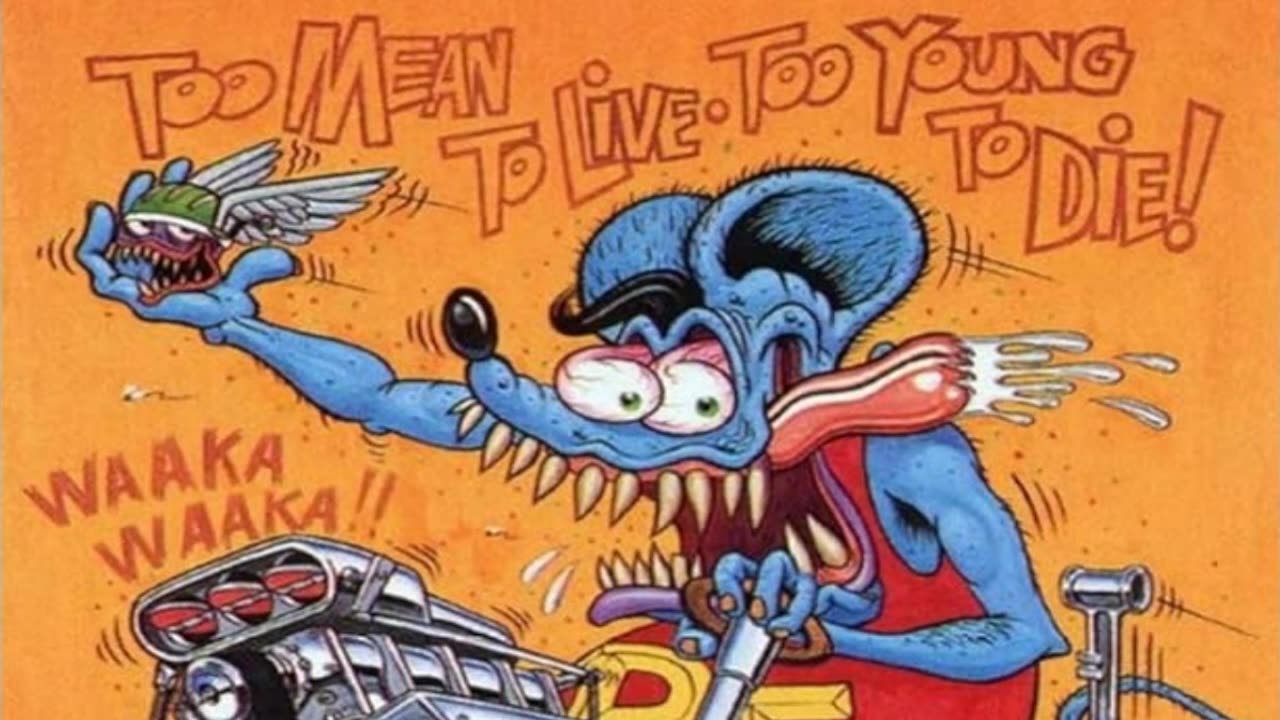
La Grange I Gotsta Get Paid Zz Top
La Grange Album: Tres Hombres (1973)
I Gotsta Get Paid Album: La Futura (2012)
by ZZ Top
La Grange is about a whorehouse. Many people in Texas knew about it, but when the song was released it drew so much attention to the illegal activities going on there that they had to cease operations.
"The Chicken Ranch," or Miss Edna's Boarding House in La Grange, was probably the oldest establishment in Texas catering to the oldest profession. It was closed down by a zealous TV reporter from Houston, who couldn't find enough vice and corruption to report in Houston. He challenged the governor on the issue of why it continued to operate in fairly plain sight. The governor had no choice but to order the sheriff to close it.
Miss Edna's girls had weekly visits from the local doctors, so they were "clean." The girls spent their money in La Grange and when a new hospital was needed, Miss Edna gave the first and largest donation. The reporter remained on the air crusading against such hideous crimes such as slime in the ice machines of restaurants.
Most of the building still stands, only a room was moved to Dallas for a nightclub. A "Ten to get in" was the price. There was a strict dress code for patrons - only sharp dressed men were allowed in.
The place in this song is the subject of the 1982 movie The Best Little Whorehouse In Texas, starring Dolly Parton and Burt Reynolds, which was adapted from a 1978 Broadway play.
In a 1985 interview with Spin magazine, ZZ Top bass player Dusty Hill explained: "Did you ever see the movie, The Best Little Whorehouse in Texas? That's what it's about. I went there when I was 13. A lot of boys in Texas, when it's time to be a guy, went there and had it done. Fathers took their sons there.
You couldn't cuss in there. You couldn't drink. It had an air of respectability. Miss Edna wouldn't stand for no bulls--t. That's the woman that ran the place, and you know she didn't look like Dolly Parton, either. I'll tell you, she was a mean-looking woman. But oil field workers and senators would both be there. The place had been open for over 100 years, and then this a--hole decides he's going to do an exposé and close it. And he stirred up so much s--t that it had to close.
La Grange is a little bitty town, and little towns in Texas are real conservative. But they fought against it. They didn't want it closed, because it was like a landmark. It was on a little ranch outside of town, the Chicken Ranch. Anyway, we wrote this song and put it out, and it was out maybe three months before they closed it. It pissed me off. It was a whorehouse, but anything that lasts a hundred years, there's got to be a reason."
La Grange had a Coca-Cola bottling plant there.
The music is based on a John Lee Hooker song called "Boogie Chillen." Hooker died in 2001 at age 83.
Billy Gibbons explained how he got his guitar sound on La Grange in a 1995 interview with Guitar World. Said Gibbons: "That is straight guitar into amp, a 1955 Strat with a stop-tailpiece through a 1969 Marshall Super Lead 100. That fuzz sound in the lead and in the front and back end of the composition is just pure tube distortion. Pickup-setting differentials account for the different tones. The opening part was played on what we used to call 'the mystery setting' in the dark days before the existence of the five-way toggle switch, when finding that perfect 'tweener required dedication."
In 1992, Bernard Besman, who owned the copyright to "Boogie Chillen," claimed he had just recently heard La Grange and sued ZZ Top. After years of litigation, a court ruled that "Boogie Chillen" was in the public domain and ZZ Top was not liable.
Talking about the song in Rolling Stone, guitarist Billy Gibbons said: "'La Grange' was one of the rites of passage for a young man. It was a cathouse, way back in the woods. The simplicity of that song was part of the magic - only two chords. And the break coming out of the solo - those notes are straight Robert Johnson. He did it as a shuffle. I just dissected the notes."
La Grange was ZZ Top's biggest hit at the time. They were big in Texas, but not nationally known until their 1975 album Fandango!, which led to their 1976-1977 Worldwide Texas Tour, where they played from a stage shaped like the state of Texas, adorned with native plants (cacti) and animals (buzzards, buffalo).
La Grange is an example of the Texas sound ZZ Top developed. Southern rock was big at the time, but Texas had its own thing. ZZ Top modeled their music on a gunslinger image, drawing inspiration from their proximity to Mexico.
Billy Gibbons told Mojo magazine La Grange is his song that he sings in the shower. He explained: "It's the single ZZ Top track with only two verses. I can recite it in proper tempo, then get on with it."
I Gotsta Get Paid is a revamp of fellow Texan DJ DMD's 1989 rap hit "25 Lighters," which is Houston ghetto slang for taking Bic Lighters apart, removing the innards and filling them with crack. Billy Gibbons explained to MusicRadar.com how the veteran rockers ended up reworking a hip-hop tune: "25 Lighters was a hip-hop chart topper 15 years ago, and it just so happened to be one of the tracks that our engineer, Mr. Gary Moon, was around for when he served as chief engineer at John Moranz Digital Services," he explained. "That house specialized in rap and hip-hop clients.
While our studio was being worked on, we took refuge in that house," Gibbons continued, "and it was there that ZZ Top got friendly with a bunch of the hip-hop and rap guys. We were comparing notes and exchanging ideas; they were showing us beats and I was showing them guitar stuff. A great time was had."
As a band who usually record their own original material, ZZ Top weren't used to the machinations of getting permission to rework an original song. Said Gibbons to MusicRadar: "What we discovered is that when an artist covers a song, it's called a 'cover version.' When an artist begins to modify and change it, after a certain percentage, it's a 'derivative work,' and that requires the new version to be reviewed by the originators. If the originators like it, they can wave holy water over it and you're good; if they don't, you're stuck.
The two original performers, Lil' Keke and Fat Pat, had passed away," he continued, "and it was the last day to decide if we could do it that we tracked down the executor of the estates. We played him the track over the phone. 'I don't know if I can understand this,' he said. 'I'm going to put the phone to my little girl. She's 14.' When she heard it, she said, 'Daddy, they're playing your song!' So the executor got back on and said, 'Looks like you've got a winner.'"
ZZ Top were seen playing I Gotsta Get Paid in an advertising campaign for Jeremiah Weed Root Brew.
Discussing the long player, Gibbons said, "We thought long and hard about what this album should be. We wanted to recall the directness of our early stuff but not turn our backs on contemporary technology. The result of this melding of the past and the present is, of course, La Futura."
-
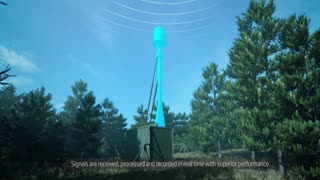 8:42
8:42
Psychological operations
1 day agoTwo Pairs Of Hands Cleaning My Gun Mark Knopfler
20 -
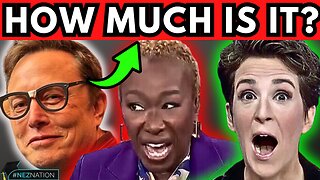 17:06
17:06
Professor Nez
8 hours ago🚨BREAKING: Elon Musk to BUY MSNBC!? Dems STUNNED by Brian Williams’ Viral Video!
41.4K43 -
![If You Smell LALALALA What CHiLi IS COOKING!!... #RUMBLETAKEOVER [Overwatch 2]](https://1a-1791.com/video/s8/1/e/s/X/3/esX3u.0kob-small-If-You-Smell-LALALALA-What-.jpg) 4:27:40
4:27:40
CHiLi XDD
10 hours agoIf You Smell LALALALA What CHiLi IS COOKING!!... #RUMBLETAKEOVER [Overwatch 2]
25.6K1 -
 LIVE
LIVE
Delnorin Games
11 hours ago🔴 Live - Star Citizen
1,921 watching -
 1:39:44
1:39:44
HELMET FIRE
12 hours agoDEADROP IS BACK!
137K8 -
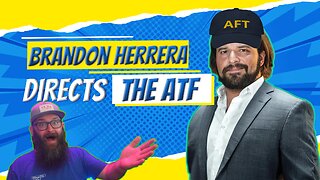 10:03
10:03
Tundra Tactical
14 hours ago $14.84 earnedBrandon Herrera Vies Bid for ATF Director!
87.7K15 -
 22:01
22:01
DeVory Darkins
1 day ago $35.30 earnedHakeem Jeffries SHUTS DOWN The View as Matt Gaetz Speaks out
77.1K127 -
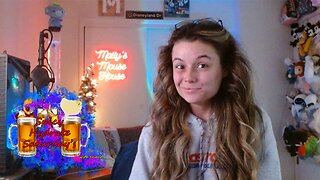 2:02:54
2:02:54
Mally_Mouse
13 hours agoLet's Play!! - Spicy Saturday
57.2K2 -
 1:33:06
1:33:06
Slightly Offensive
14 hours ago $29.98 earnedAre You Ready for What's Coming Next? | Just Chatting Chill Stream
74.5K41 -
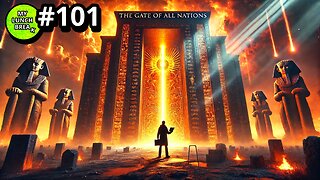 32:10
32:10
MYLUNCHBREAK CHANNEL PAGE
1 day agoThe Gate of All Nations
146K63